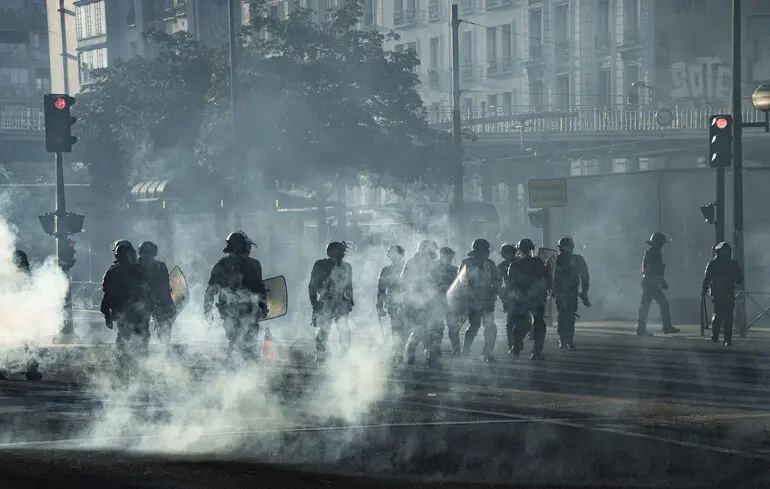Mass Protests in France: Widespread Civil Unrest Against Government Reforms and Political Instability

In August 2025, France became the scene of the country’s largest-scale protests in recent history, involving dozens of cities and regions.
Tens of thousands of citizens took to the streets under the slogan ‘Bloquons tout’ (‘Let’s block everything’), expressing their anger toward various government policies and economic reforms.
The demonstrations were marked by road blockades, transport disruptions, marches, and clashes with law enforcement officers, leading to significant disturbances in vital infrastructure operations.
According to the French Ministry of Internal Affairs, at least 175,000 protesters participated across the country, with over 550 separate actions recorded nationwide.
Police detained approximately 473 individuals, including 203 in Paris alone.
The main causes of unrest include widespread dissatisfaction with government austerity measures, pension freezes, reductions in public spending, and increasing national debt.
The appointment of Sebastián Lecornu as prime minister, the third in less than two years, sparked widespread criticism from both left and right political forces.
His predecessors had been dismissed or replaced amid unpopular reforms and internal political crises.
Lecornu’s appointment further intensified tensions.
Street protests also turned violent in some cities: protesters set trash bins on fire, blocked roads, and attacked transportation targets.
For example, in Rennes, a bus was set alight, and near Toulouse, electrical cables were damaged.
In Paris, several metro stations and suburban trains temporarily ceased operation, and thousands gathered in city streets, some clashing with police at the Gare du Nord, where tear gas was used.
During the demonstrations in central Paris on the Place du Château, a restaurant caught fire, with flames spreading to the facade; authorities swiftly contained the blaze.
Official reports suggest the fire originated inside the restaurant, while protesters accuse police of possible arson following the use of tear gas grenades.
An investigation has been launched.
Politically, these events are occurring amid tense debates about Lecornu’s future as prime minister—opposition parties called for a vote of no confidence, while he pledged cooperation with unions and political factions, emphasizing prudence and responsibility.
The country’s economic situation remains strained: France’s budget deficit in 2024 reached nearly 6% of GDP, provoking fierce debates among parliamentary factions on how to address the crisis.
The protests demand increased funding for public services, higher taxes on the wealthy, rent freezes, and broader social reforms.
Many young people at North Station expressed solidarity with those suffering economic hardships, claiming they are tired of Macron’s policies.
Public opinion criticizes President Emmanuel Macron increasingly; recent polls indicate over half of the population supports early presidential elections, with calls for Macron’s resignation growing louder.
Meanwhile, some opposition deputies demand the president step down, though Macron refuses.
His current term is scheduled to end in 2027.
Experts suggest that internal political instability and the dismissal of previous governments, combined with the dissolution of the National Assembly, have significantly weakened Macron’s authority, complicating France’s diplomatic efforts and its support for Ukraine.
According to Ukraine’s former ambassador to France, Oleks Shamsur, France’s internal turbulence could limit its capacity for international aid and strategic partnerships, including assistance to Ukraine, as decision-making shifts towards more fragile political structures.

